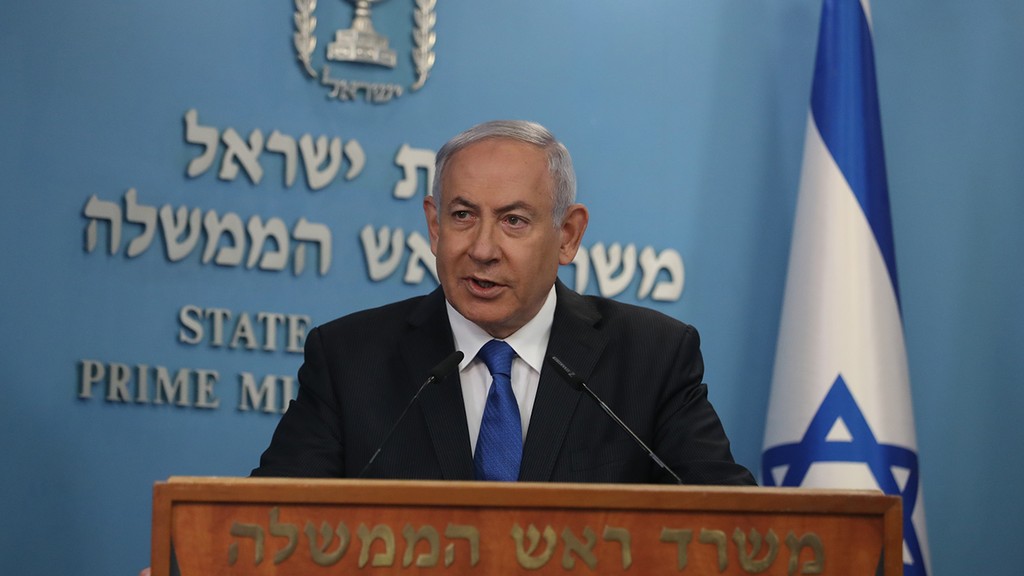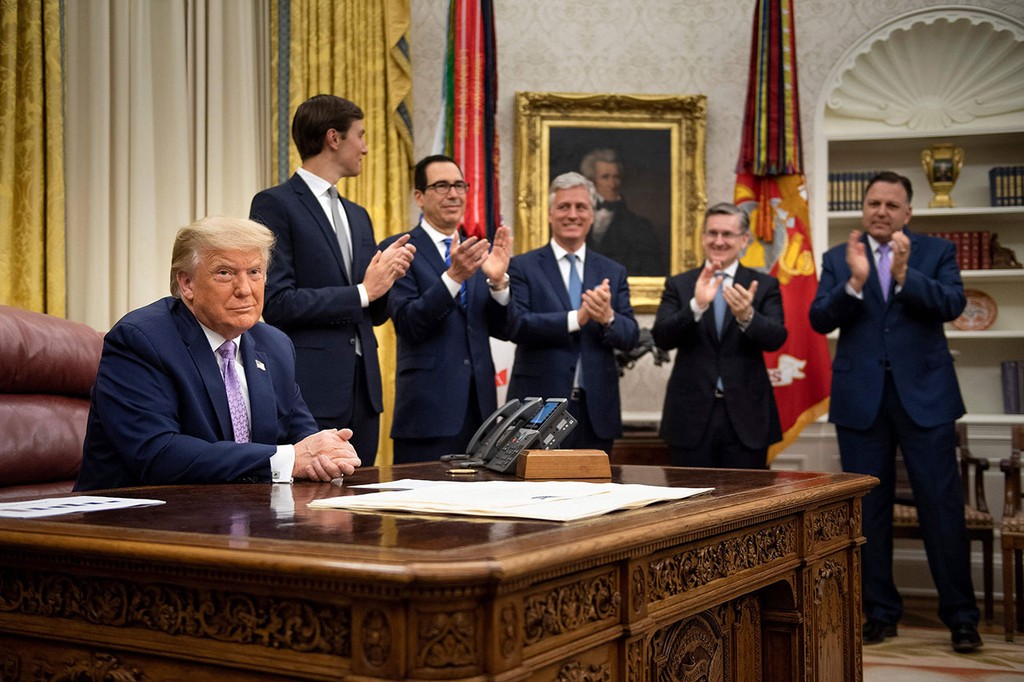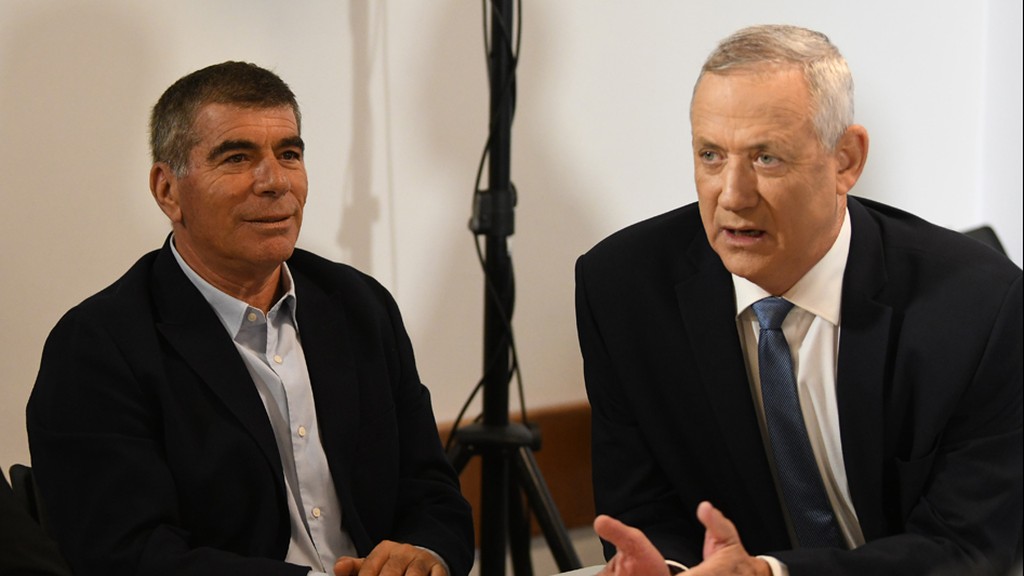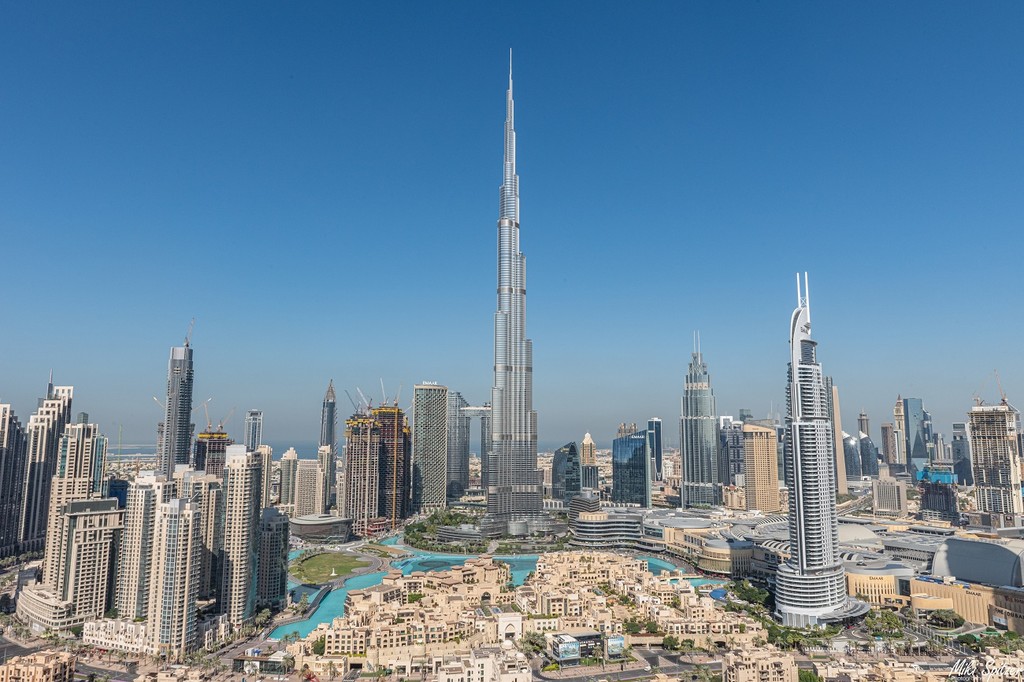Getting your Trinity Audio player ready...
Prime Minister Benjamin Netanyahu on Thursday said that the announcement that full diplomatic ties will be established with the United Arab Emirates has ushered in a "new era" in Israel's relations with the Arab world.
In a nationally broadcast statement delivered on Thursday, Netanyahu said the "full and official peace" with the UAE would lead to cooperation in many spheres between the countries and a "wonderful future" for citizens of both countries.
5 View gallery


Prime Minister Benjamin Netanyahu speaking on the UAE agreement in an address to the nation on Thursday
(Photo: Flash90)
His comments came shortly after U.S. President Donald Trump announced the agreement, which was finalized Thursday in a three-way telephone call between the American and Israeli leaders and Emirati Crown Prince Mohammed bin Zayed Al Nahyan.
Emirati Foreign Affairs Minister Anwar Gargash was quick to stress that the agreement was aimed at ending Israel's plan to annex parts of the West Bank, which his country feared would end any prospect of a two-state solution between Israelis and Palestinians.
5 View gallery


U.S. officials applaud President Donald Trump as he announces the Israel-UAE agreement
(Photo: AFP)
Netanyahu said Thursday night that Trump had asked him to suspend annexation plans, but said that it may still go ahead someday with U.S. coordination.
He said there was "no change" to his intention to annex parts of the West Bank, but the plans were on "temporary hold."
The prime minister also denied that the agreement "was not related to political deadlines or elections," despite his ongoing row over the state budget with political partner Benny Gantz of Blue & White, which threatens to plunge the country into a fourth round of voting in less than two years.
He also confirmed that Alternate Prime Minister Gantz and Foreign Minister Gabi Ashkenazi, also of Blue & White, were kept in the dark about the imminent announcement in order "to protect the success of the agreement."
5 View gallery


Foreign Minister Gabi Ashkenazi, left, and Alternate Prime Minister Benny Gantz were kept in the dark on the deal
(Photo: Yair Sagi)
Netanyahu has seen his popularity plummet as the country grapples with a renewed coronavirus outbreak and skyrocketing unemployment as the result of earlier lockdown measures.
Among Arab nations, only Egypt and Jordan have active diplomatic ties with Israel. Egypt made a peace deal with Israel in 1979, followed by Jordan in 1994.
For Israel, the announcement comes after years of boasting by Netanyahu that his government enjoys closer ties to Arab nations than publicly acknowledged.
Netanyahu has sought to build settlements on lands sought by the Palestinians and embraced a Trump proposal that would allow him to annex large parts of the occupied West Bank while granting Palestinians limited autonomy in other areas.
For the UAE, home to skyscraper-studded Dubai and the rolling, oil-rich sand dunes of Abu Dhabi, it further burnishes its international campaign to be seen as a beacon of tolerance in the Middle East despite being governed by autocratic rulers. It also puts the UAE out first in a regional recognition race among neighboring Gulf Arab states.
The joint statement from the U.S., the UAE and Israel said delegations would meet in the coming weeks to sign deals on direct flights, security, telecommunications, energy, tourism and health care. The two countries also will partner on fighting the coronavirus pandemic.
The UAE is a U.S.-allied federation of seven sheikhdoms on the Arabian Peninsula. Formed in 1971, the country like other Arab nations at the time did not recognize Israel over its occupation of land home to the Palestinians.
Next year, Israel will take part in the UAE's delayed Expo 2020, the world's fair being hosted by Dubai. A secret synagogue also draws practicing Jews in Dubai.
The UAE also has announced plans to build the Abrahamic Family House in Abu Dhabi, which will house a mosque, a church and a synagogue.
Israelis traveling with Western passports routinely enter the UAE without a problem, though one still cannot make a phone call between the two countries. Israelis also work in Dubai's gold and diamond trade.
Emirati officials also have allowed Israeli officials to visit and the Israeli national anthem was played after an athlete won gold in an Abu Dhabi judo tournament. Israel also has a small mission representing its interests at the International Renewable Energy Agency in Abu Dhabi.



